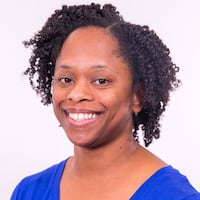Cobb County renters who have been drastically affected by the coronavirus pandemic can apply for a program to help them stay in their homes.
The Cobb County Homesaver Program for Renters provides up to $4,800 in assistance to people who live in single family homes, condos, attached homes and apartments.
To qualify, residents must have experienced a coronavirus-related financial hardship that resulted in reduced or total loss of income, medical hardship or have been receiving unemployment due to the pandemic since March 1. Applicants must also have lived in their homes on or after March 1.
The gross income for a single applicant can’t be higher than $69,439; for joint applicants, the gross income can’t exceed $94,672. Residents can email CobbHomeSaver@homefreeusa.org for questions or visit www.cobbhomesaver.org/renters for a full list of qualifications and to apply for the program.
Cobb County commissioners on Sept. 8 approved a memorandum of understanding with HomeFree-USA to administer the program. The county allocated $1.9 million of the $132 million in Coronavirus Aid, Relief and Economic Security Act funding it received from the federal government to pay for this program.
The approval came after commissioners debated and rejected an alternate proposal put forth by Commissioner Lisa Cupid. Cupid’s proposal would have allowed three Cobb County-based organizations, Sweetwater Mission, MUST Ministries and Center for Family Resources, to manage the rental assistance program.
Commissioner Bob Ott said he was concerned about the possibility of people visiting each of the three organizations in an attempt to get assistance. Commissioner Joann Birrell said she would be comfortable with only one organization managing the program.
“We are accountable for this money and we can’t just give out CARES Act money without accountability," she said.
Cupid said the board wasn’t worried about accountability when it gave the Cobb County School District $8.1 million in CARES funding for its Cobb Teaching and Learning System without asking if students had the technology to learn from home.
“Here we have organizations that have a strong history of working with the county and all of a sudden, the same commissioners that refer people to those agencies have an issue of accountability with their ability to use those funds,” she said. Cupid also said the action weakens the board’s partnership with organizations in the county.
About the Author
Keep Reading
The Latest
Featured




